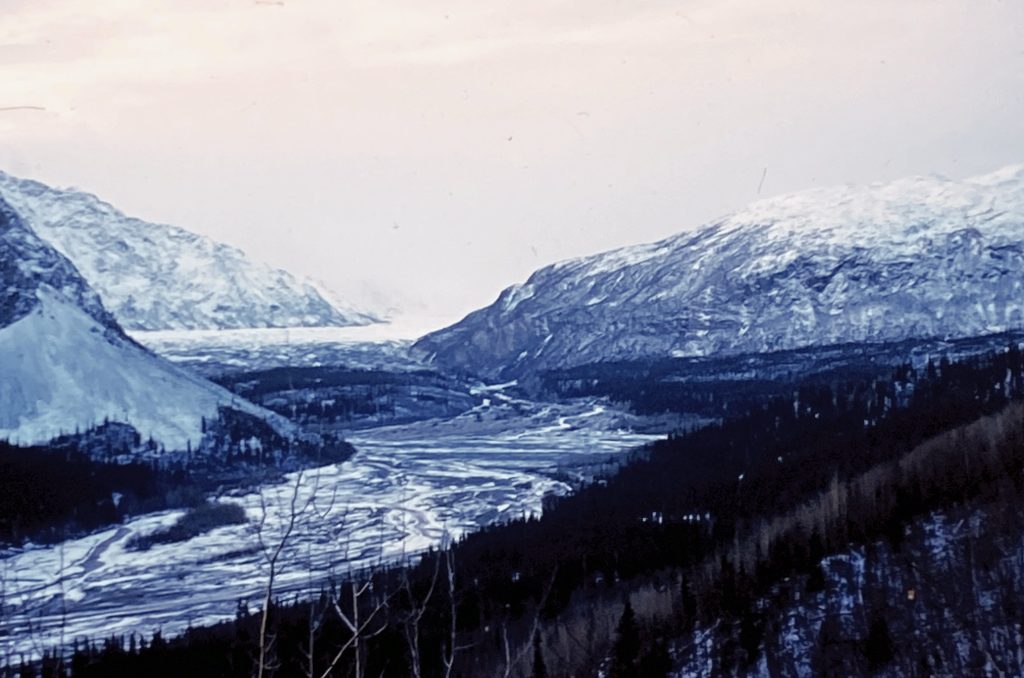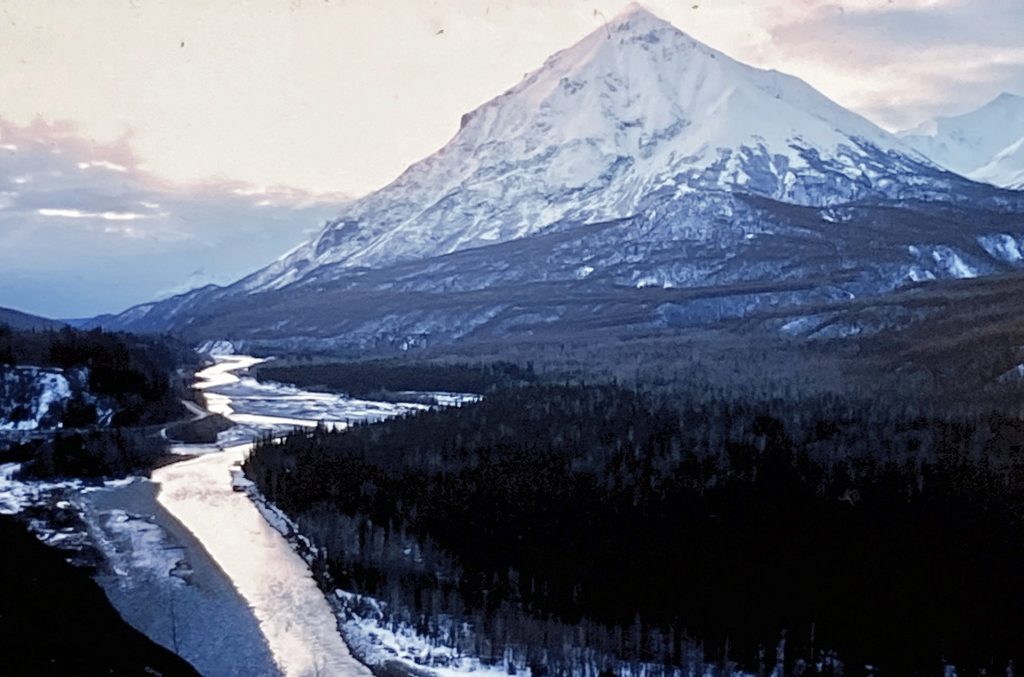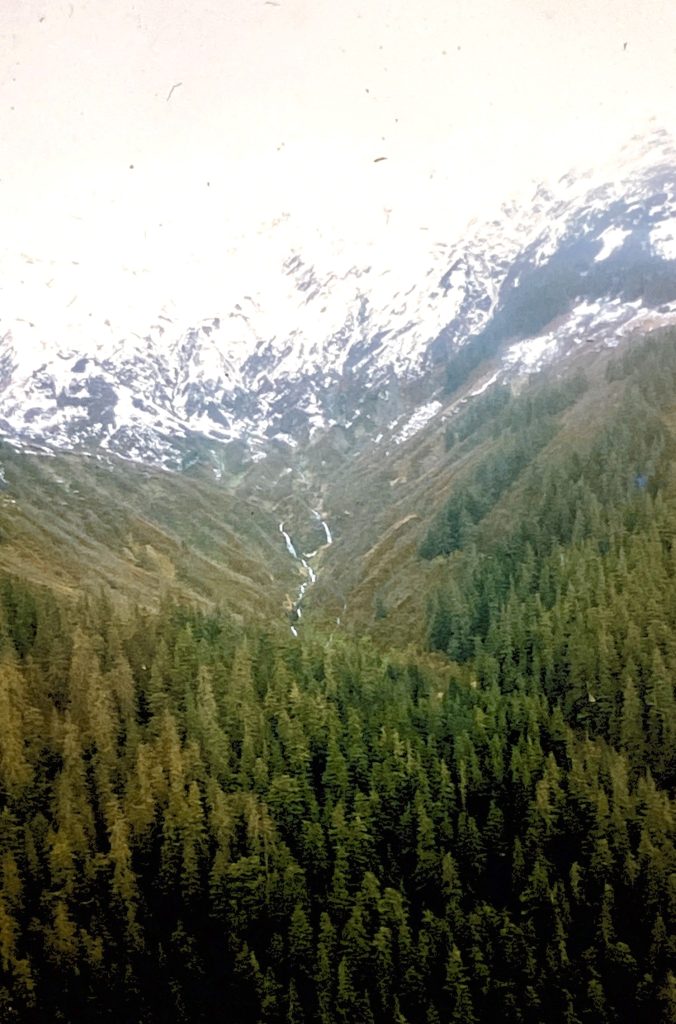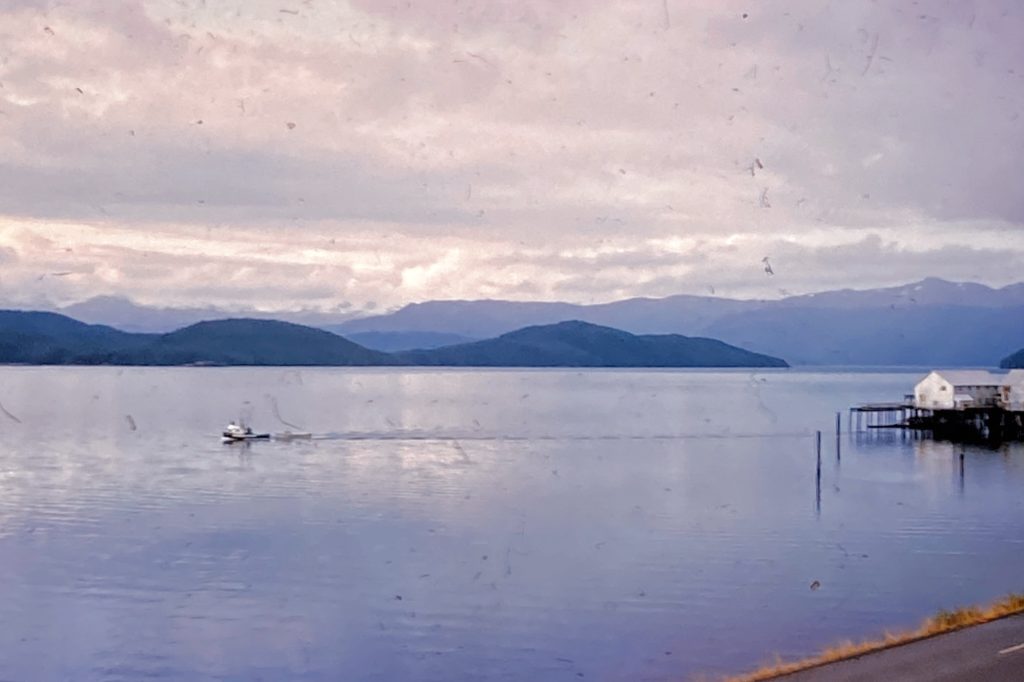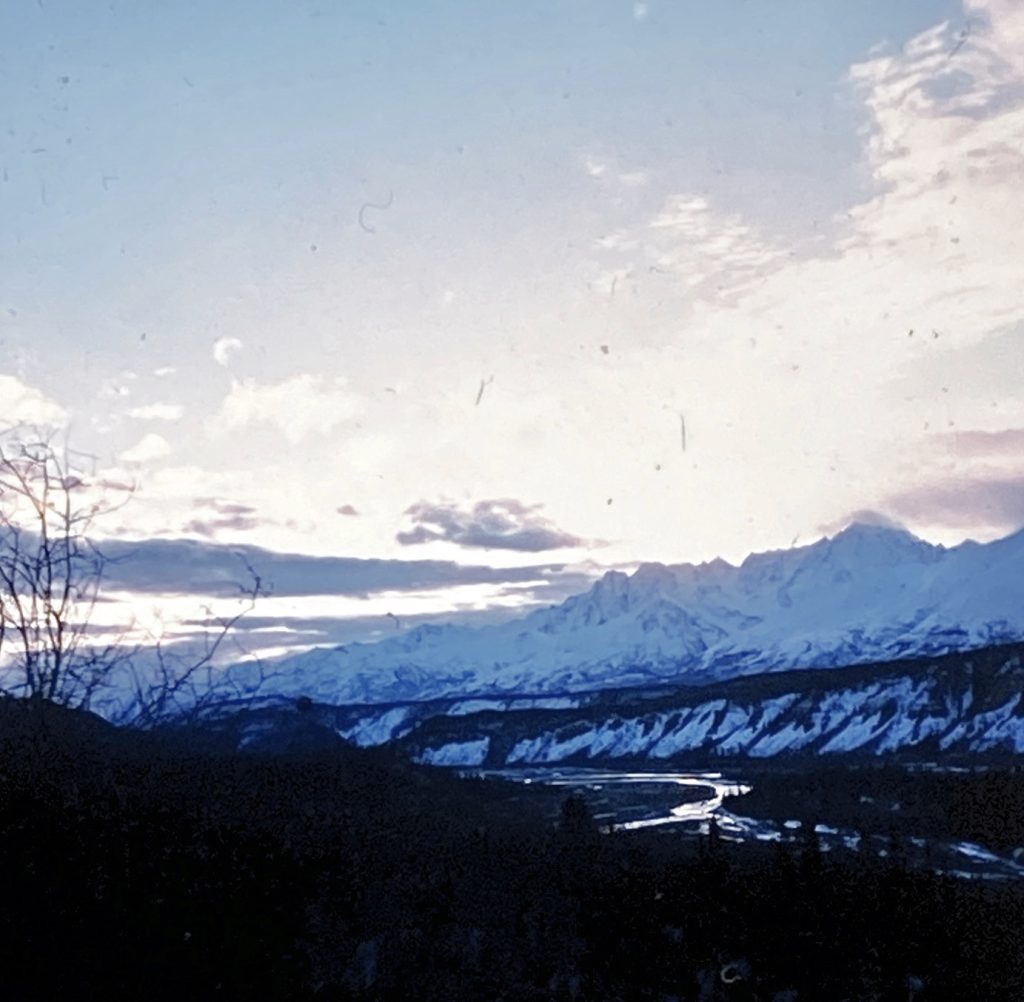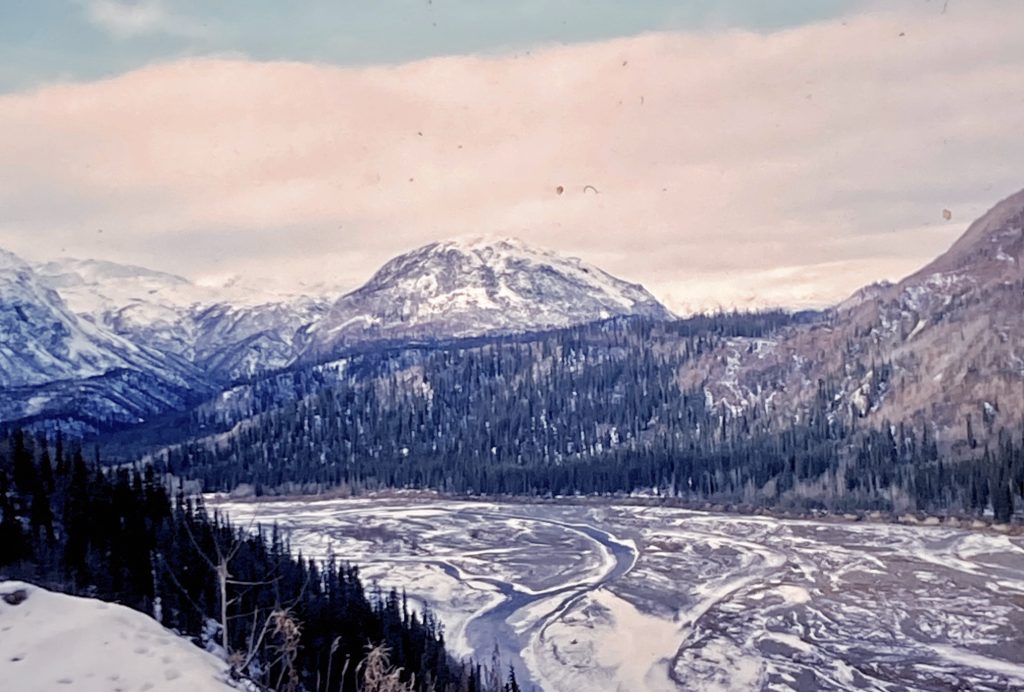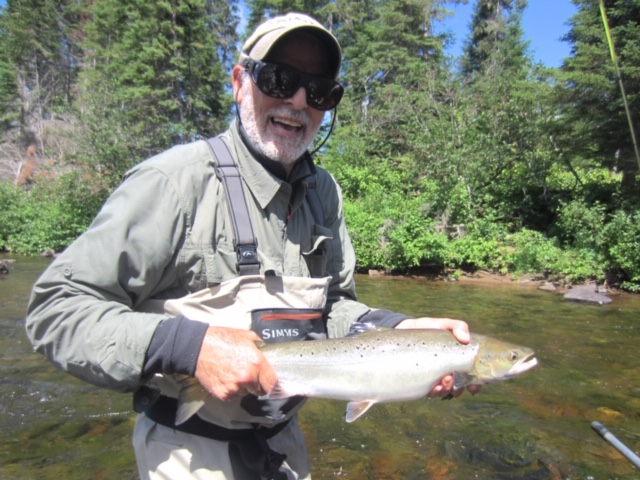
Cascapedia Grilse


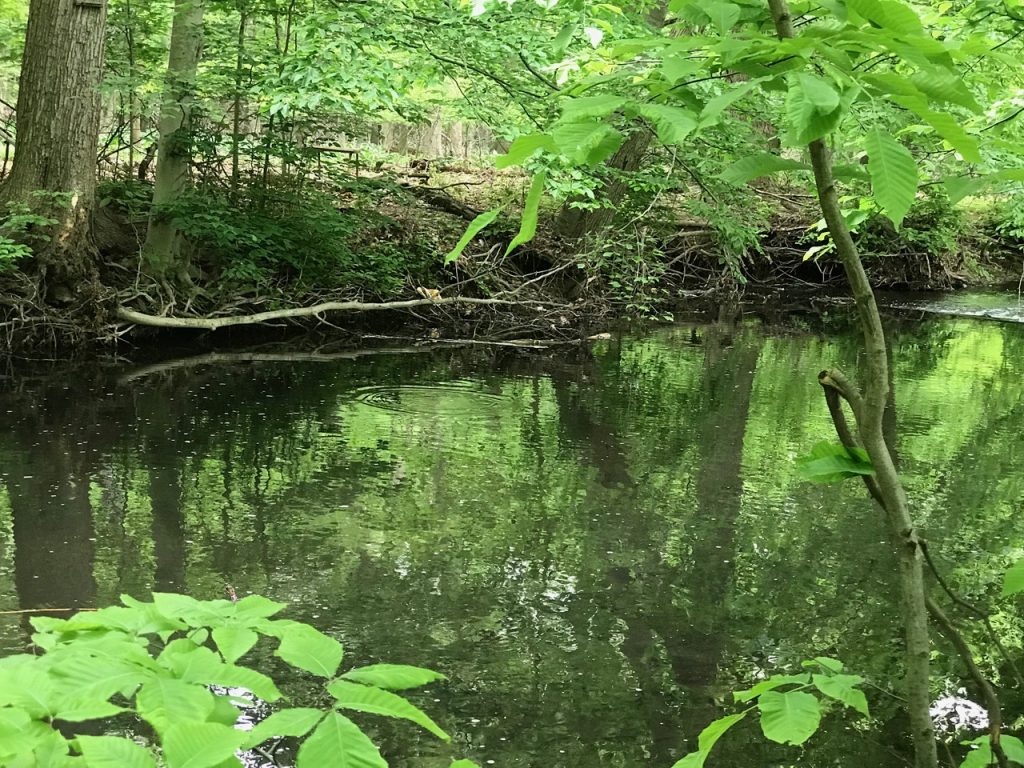
As the summer deepened and the lazy afternoon sun lingered on the tops of the maples and elms, refusing to set, I would rummage through the leaf pile by the old post and rail fence in our backyard. Soon there would be several dozen wigglers safe in the Del Monte corn can, half filled with soil, that my mom was learning to save for my fishing trips. I’d grab my rod and hop on my bike for the short ride down to the brook, several blocks away at the bottom of the hill at the end of the street. It was a small, meandering creek with a sand and mud bottom, and a few stony riffs. Throughout its miles of pools, glides and riffles, it wandered through four towns, and under half a dozen bridges, one of which was the old concrete one on Fairview Avenue at the end of our street. In the swollen coffee-colored early-season water under its abutment, I’d caught my first trout – a twelve-inch brookie, which I proudly ran home with to show my folks. Just above the bridge the brook formed a large pool, curving slowly around to glide smoothly under the bridge. Along one bank of the pool was a sloping grassy bank, a perfect spot to find a good fork-shaped branch, get comfortable, bait up, and see what developed. In addition to the elusive trout, the brook could also surprise a wide-eyed seven year old with catfish, yellow perch, blue gill, eel, roach, suckers and even an occasional bass that had made its way over the spillway at Woodcliff Lake Reservoir five miles upstream. I loved sitting on the bank, still fishing into the big pool above the bridge. When the translucent blue monofilament would twitch, and then slowly the slack would tighten, I never knew what I’d find on the other end. And since most of the put-and-take trout fishermen had long ago stashed their rods in the closet, I generally had the place all to myself.
So I was somewhat surprised, one July evening, as I coasted my Schwinn down the long hill to the bridge with an eight of spades held by a clothes-pin, making a clattering racket in the spokes of the rear wheel. Two figures were already sitting on the bank, my bank, lines dangling in the water.
One of the intruders was an older gentleman – even older, I thought, than my own father. He was short and stocky, his graying hair was thinning, and I could tell he’d be bald someday. He was dressed in rumpled khaki work pants, black shoes, and a white T-shirt, and he looked like he was about a week’s distance from a decent shave. His muscled arm had a colored tattoo just above the biceps, the first that I had ever seen. It was a blue anchor with the words “God Bless America,” circling it, and I imagined that the man must have been in the navy. As I warily approached, the man smiled a warm, genuine smile and puffing on a Lucky Strike said, “Hi, my name is Joe, and this is my son Gary.” Even as a seven-year old, I remembered thinking that there was a hint of sadness in that smile.
I soon learned that Joe worked for the town as a sanitation man, and lived in a house two blocks from the brook. Later, when I rode past the house on my bike, I discovered that Joe also seemed to collect and sell junk parts of almost anything and everything. Stacks of doors, tires, old swing sets, hubcaps, shingles – you name it, were piled up in every nook and cranny in the front yard. The small house was of weathered, whitish stucco with a red clay shingled roof. There was nothing remarkable about it, nothing that stood out or caught my eye. Just a little, nondescript house among many nondescript houses.
It was difficult to tell how old Gary was. Gary had Down’s Syndrome, but back then, I had heard my parents, their voices lowered, refer to people such as Gary as “retarded.” Not knowing how to interpret that, or how someone actually came to be “retarded,” my natural seven-year old reserve led me to keep my distance. I knew that there was a class in school called the “special class” that contained other children like Gary. But they were completely segregated from the everyday goings-on of the school, an unfortunate trait of 1950’s educational philosophy. While this was never talked about, its damaging subtlety was not lost on me, and the silent assumption drawn was that one did not associate with these children. Consequently, I felt ill at ease around them. So setting up my tackle, I kept a wary eye on Gary. But I soon learned that keeping my distance from him was a horse of a different color.
Gary sat next to his father on the bank, wide-eyed and bushy-tailed, a non-stop stream of chatter. What kind of fish were in the water? Were they big fish? Where was the line? And on and on he went, and when he had seemingly exhausted every conceivable question, he’d just begin all over again as if he’d never asked them in the first place. And to make matters worse for me, who loved the solitude of the pool, Gary seemed to have no inhibitions about wanting to get to know me. With an almost unconfined energy, he immediately sat down next to me and began asking me the same questions. Petrified, and unsure of how to react, I stammered for answers. But Joe just chuckled quietly, and with kind eyes said, “Gary, come here and I’ll show you where the fish are.” Gary bolted back over, and with infinite patience Joe began the explanations once again, the two veiled in a fog of bluish smoke from Joe’s Lucky Strikes.
I felt a small tug on my line, and tensed slightly. A second bump, then another, and I lifted the tip sharply. A minute later I had a fat yellow perch flopping on the bank. Gary was wild with excitement. “Mine!” he yelled at the top of his lungs, running over to me. I began to unhook the wiggling fish. “Mine,” Gary again yelled. Joe walked over and took Gary’s hand. “The fish belongs to the boy, Gary – he’s the one who caught it.” I held the fish momentarily and threw it gently back into the pool. Gary pointed at the water yelling, “fish, fish.” Joe laughed and said “C’mon Gary, let’s try to catch that fish all over again.” Gary sat back down next to Joe, still pointing at the water and saying “fish,” and glancing back at me.
The entire length of the pool was now in shadow, and the western sky was washed with orange. I swatted at a mosquito, and the trees were a chorus of locusts and crickets.
We had been sitting there over two hours now, making small talk about fishing, baseball, school and whatnot. I was beginning to feel more at ease, and it seemed to me that Gary had calmed down a bit too, although he continued to pepper Joe with questions. As twilight faded to night, I gathered my things and said goodbye. Joe said, “It was nice meeting you Len – maybe we’ll see you here again.” As I peddled my bike across the bridge, out of the corner of my eye I saw Gary and Joe waving. They sat and watched me wave back, the rat-tat-tat clatter of the card in the spokes gradually fading in the spreading darkness.
I leaned the bike against the wall inside the old garage behind our house. The garage was more like a barn, with a loft and roughly-cut exposed oak beams everywhere. It had been built around the turn of the century, along with the house. It still had some ancient, rusting lawn equipment hanging from nails in the wall, and about a dozen old license plates, some going back to the 1920’s, nailed here and there to the beams. My dad had discovered a family of bats living in the rafters, and I had been there when they had been removed. I had never actually seen one close up before. Black, rubber-like skin, pointed ears, pterodactyl-like wings. I thought they were cool.
I slipped through the squeaky screen door in the back of the old house. I rested my rod in a nook by the door, next to the line of jackets hanging from brass coat hooks. I could hear my mom working in the kitchen, humming a familiar tune. She looked up and smiled as I entered the kitchen. “Any luck?” I nodded and said, “Yeah, I got a few – there was this old guy and his son.” “Anyone we know?” “Er, na, I don’t think so. Say mom, how does someone get to be retarded?” My mother put down the plate she was holding, and looked at me. The question had taken her by surprise. Boys, she thought. Who can figure out what they’re thinking? She lifted the yellow-checkered apron she had been wearing, over her head, untying the strings in the back. “Well,” she began, “it usually is from something that happens before someone is even born. Something goes wrong while a baby is still inside its mother. Why do you ask, Len?” “Aw, I wuz just wonderin’.” I wasn’t about to mention my new acquaintances, and she did not press me. She had come to expect these veiled references, and had learned to be patient. She usually got the whole story in time. I had taken a step towards the stairs when she said, “I baked an apple cobbler Len, would you like some?”
I sat in my room, a dish of apple cobbler on my night table. It was still warm, and heavy with brown sugar and cinnamon. I finished the last of it. A breeze had come up, and the lacy curtains on either side of the big, open windows fluttered inwards like flags. The humidity had built up steadily during the day, and the cooling breeze felt great. I lay back on my bed. The dull rumble of distant thunder echoed in the backyard. I wondered where the storm was, and how long it would be before it got here. I thought about Joe and Gary, and what my mother had said. I wondered if Gary understood that he was different from the other kids. Gradually, my eyelids grew heavy. More tired than I realized, I was picturing the way my line slowly tightened as an unseen shadow grabbed the bait somewhere deep in the pool above the bridge. Lost in sleep, I never saw the sky light up with the approaching storm, or felt the first drops of rain through the big, screened window.
The long, seemingly endless days of a seven year old’s summer meandered through the 1950’s calendar, slow as molasses, and with reassuring consistency. I was running into Joe and Gary regularly in the evenings by the pool above the bridge. Joe was a never-ending source of patience and kindness. No matter how many times Gary would ask the same question or attempt the same task, Joe would quietly tell or show him the answer. Tonight, looking back, I thought about my own children, intelligent and curious. And at the many times over the years I had become impatient helping them with homework, or teaching them some complicated task. I shook my head remembering, and it made me even more in awe of Joe’s patience and devotion.
As the summer rolled along, I had begun to understand Gary a little more, becoming more able to interpret his mannerisms and moods. I was beginning to see him as a distinct personality rather than a disabled person. Gary was like a ray of sunshine, always curious, always excited, and it didn’t bother me anymore when Gary would sit down right next to me and begin his non-stop questions. I would try to answer as best I could, or look to Joe for help. Sometimes I’d watch the two out of the corner of my eye, wondering if Joe worried about Gary’s future, and it made me sad to think that Gary would never have the opportunities that many other children would.
September arrived, but the humidity of the east-coast dog days hung on. One evening as the three of us sat on the bank hoping for a wisp of a breeze, three class bullies from my school rode across the bridge on their bikes. A few days later, my friend Larry and I were playing ball in the school yard when the same three approached us. “Hey Handler, saw ya fishin’ with garbage man Joe and his dumb kid.” I flushed. The sadness I felt was for Joe and Gary. And for the ignorant intolerance from the bully that stood before me. But I had seen it once before.
The leader of the pack was named Jackie Bedford. Earlier in the year I had been in school, standing in line at the water fountain, waiting my turn to have a drink.
I had just leaned down to take a sip, when out of nowhere, Jackie had shoved me aside, snarling “Get out of the way ya dirty Jew.” I flushed. It had never crossed my mind up to then that a person’s religion could be subject to ridicule. I stood there dumbfounded. My friend Fred had been standing there, and intervened, “ Aw, he’s all right, he’s a good Jew.” Although well intended, I instinctively knew that the defense had badly missed the mark. Later that night, when I told my parents what Jackie had said, my father had quietly replied, “Len, when you hear a child say something like that, what you’re really hearing is their parents speaking.” I had never forgotten those words.
Larry and I stood in the school yard facing the three bullies. I was much bigger than Jackie, and Larry was tougher than all of them together. I knew that Jackie was not about to push us too far. So I looked Jackie in the eye and said defiantly, “Yeah, want to make something of it?” Jackie wasn’t about to risk the embarrassment of losing a fight. He mumbled something about “dummies,” turned, and walked away, the group issuing a steady stream of insults and laughter on lowered voices. I was relieved that we didn’t have to fight, my heart still pounding. But I walked from the playground that day with the hollow feeling of ignorance and intolerance. It was a feeling that would surface again and again as I grew older.
The maples and elms began to show their first blush of yellows and oranges. The shadows seemed to lengthen faster and earlier across the pool, and the crisp, colorful oak leaves spun around in the brook’s current like little sailboats. My mom had taken me out for the fall ritual of buying school clothes, which I suffered through with great distress. I had continued to meet Joe and Gary throughout the summer. Tonight, sitting at my cluttered desk, our lazy Beagle, Tucker, sound asleep at my feet, fighting my own graying hair, I pictured those long ago evenings. They were the last time I saw my two fishing companions. The following spring I had heard a rumor that Joe had suffered a heart attack and had passed away. I did not know if it was true, though afterward, I drove past their house and it looked abandoned, the yard still cluttered with rusting junk. I never knew what became of Gary. And for the life of me, I could not remember if the last time we had been together, I had even said “goodbye.”
Though the bigotry and intolerance I encountered in my seventh year haunt me to this day, I discovered in retrospect that I was blessed to witness, at an early age, that real love has no boundaries. I never forgot the unending patience and compassion that Joe unconditionally gave to Gary. And I learned how much it can hurt to be cruelly labeled as “different.” They were lessons that remained with me for the rest of my life.
A great morning with the Grandkids and guide Ben Burdine fishing for Stripers on LI Sound. Both Lee and Ben landed fish exceeding 15 pounds.
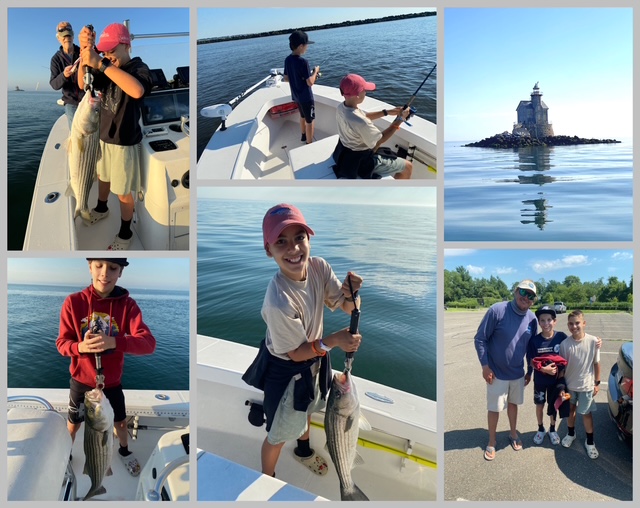
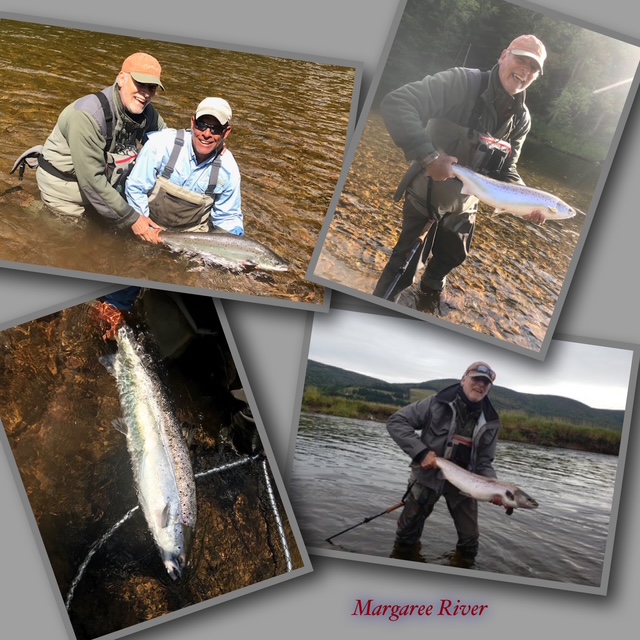
12-Fly and 3-Fly
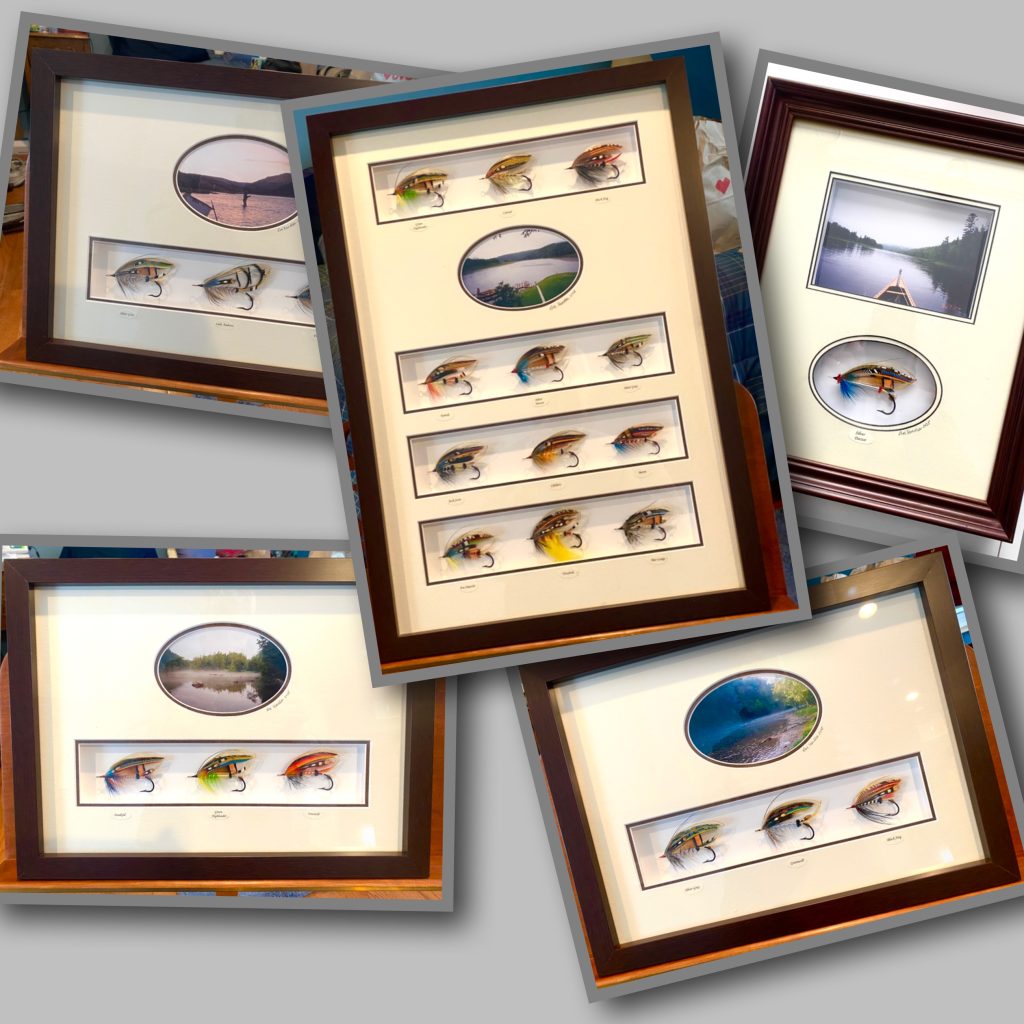
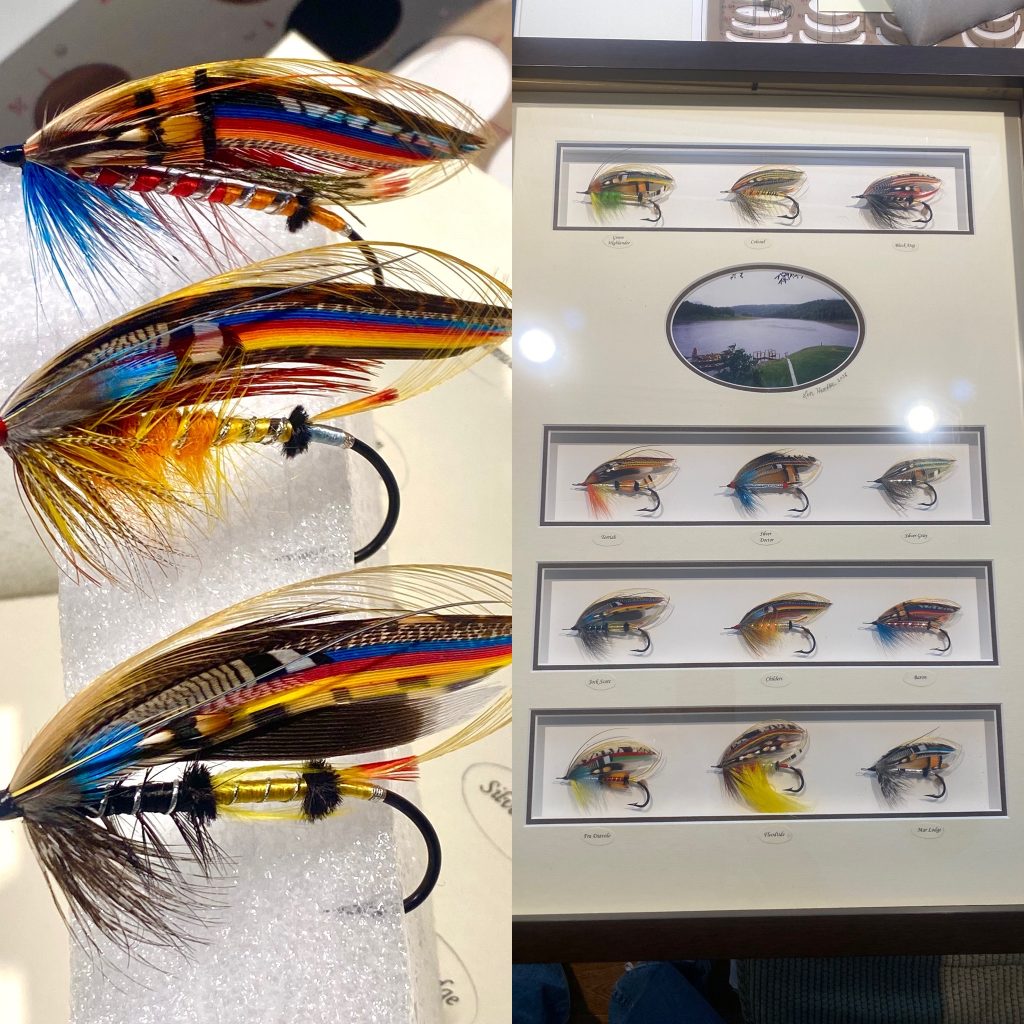
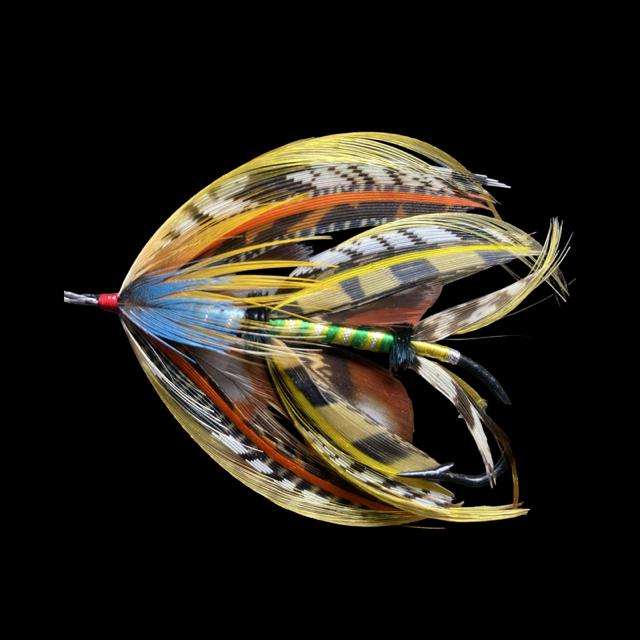
SATB Chorus and String Quintet
Performed by Music on the Hill: March 8, 2025
From Lutesuite #1 in E Minor

